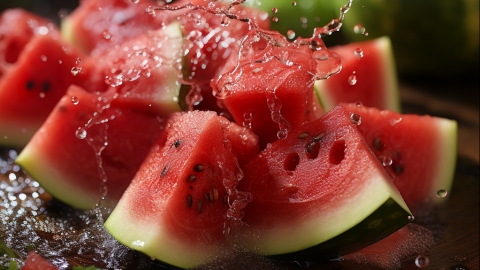Can grapes and watermelon be eaten together?
Under normal circumstances, grapes and watermelon can be eaten together. A detailed analysis is as follows:

Grapes are rich in vitamins, minerals, amino acids, and phytochemicals. These components offer multiple benefits, including antioxidant effects, free radical elimination, enhanced immunity, and improved skin condition. Moderate consumption of grapes can also help replenish energy, relieve fatigue, promote red blood cell production, and improve brain cell function. Watermelon contains abundant vitamin C, vitamin A, antioxidants, and minerals such as potassium, magnesium, and calcium. Watermelon offers various benefits, including clearing heat and relieving summer heat, hydrating the body, boosting immunity, and promoting collagen synthesis.
Eating grapes and watermelon together can provide complementary nutrients. The vitamins and minerals in grapes interact with the water content and nutrients in watermelon, contributing to overall health promotion. Additionally, these two fruits offer different taste experiences; the tart-sweet flavor of grapes pairs well with the refreshing sweetness of watermelon, providing a more diverse sensory enjoyment.
When consuming, it is recommended to eat in moderation to avoid excessive intake, which may cause discomfort such as bloating, diarrhea, or abdominal pain. Individuals allergic to grapes or watermelon should avoid consumption.








